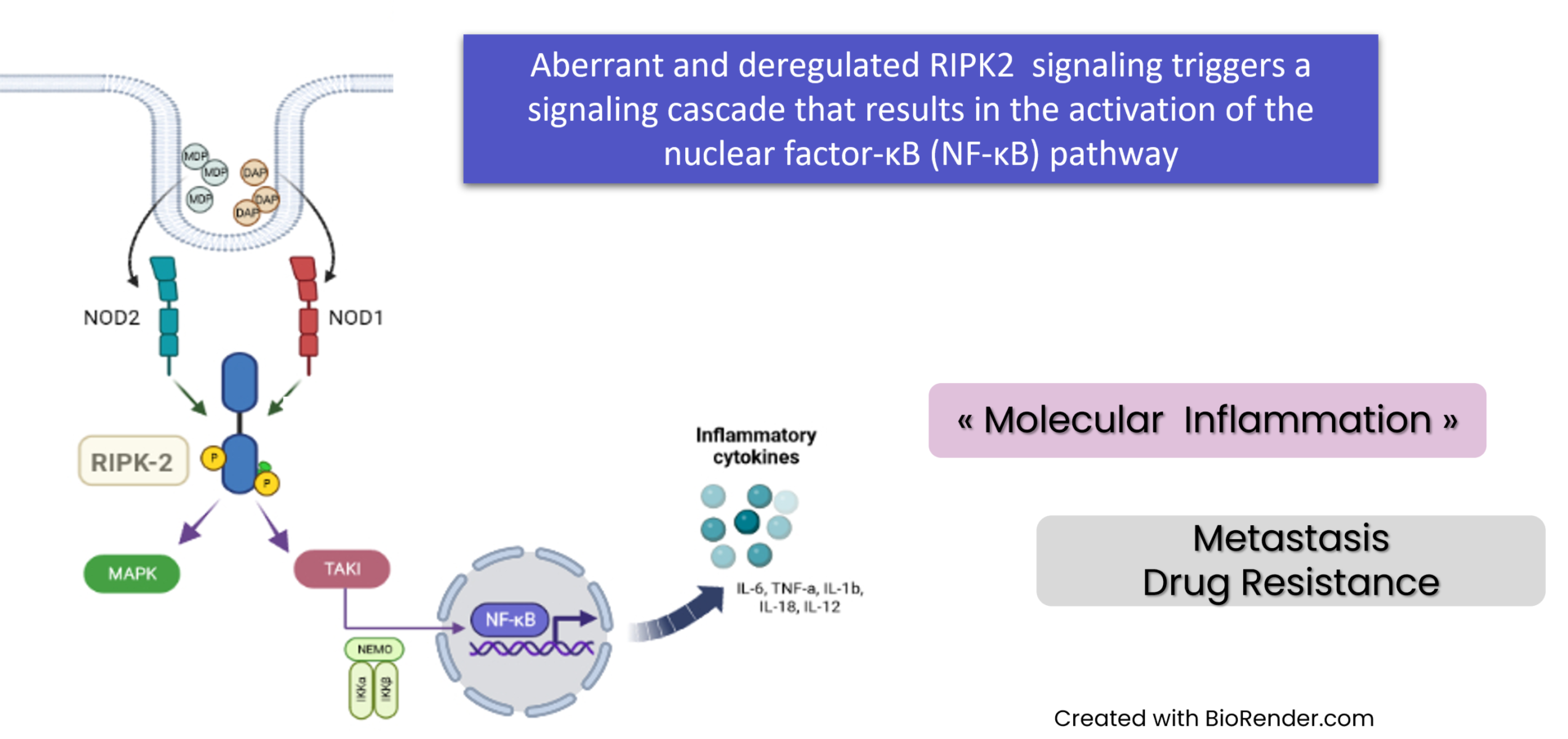At OPM, we are devoting to provide patients with new therapies derived from our various technological platforms, particularly for cancers resistant to standard therapies and metastatic cancers, which are currently the two leading causes of cancer-related deaths. Our Nanocyclix® platform is a major asset for discovering and developing a pipeline of “first-in-class” small molecule kinase inhibitors that are highly potent and selective against novel targets.
Among our numerous preclinical projects in oncology, our most advanced project is the development of a novel “first-in-class” inhibitor of the RIPK2 protein: OPM-102. RIPK2 is a well-characterized kinase in inflammation and innate immunity, primarily functioning through the NOD/RIPK2/NF-κB signaling pathway.
It is widely recognized that chronic inflammation in tumors is a driving force that accelerates cancer invasion, metastasis, and drug resistance. For this reason, we believe that targeting RIPK2 is a feasible strategy with significant potential in the context of inflammation-related tumors.
Why target RIPK2 in cancer?
- RIPK2 is highly expressed in various types of tumors, especially in breast, ovarian, bladder, and colon tumors, among others.
- The molecular mechanisms by which RIPK2 promotes tumor progression and resistance are diverse:
- Regulation of the tumor immune microenvironment
- Mechanisms related to the amplification of oncogenes or dependence on transcription factors independent of its initial immune regulatory function
- The development of RIPK2 inhibitors is at an advanced stage compared to other inhibitors of important proteins in the NOD1/2 signaling pathway.
Our preclinical candidate OPM-102 has already demonstrated inhibition of tumor growth in a preclinical model of colon carcinoma, both as a monotherapy and in combination with anti-checkpoint immunotherapies. Furthermore, we have shown that treatment with OPM-102 inhibits the growth of organoids derived from cancer patients. Lastly, our artificial intelligence platform, which allows us to better characterize tumors based on genetic data, has led us to identify the tumor types most likely to respond to RIPK2 inhibition.
OPM’s team expertise in drug sciences, combined with the synergy between our Nanocyclix® and Artificial Intelligence platforms, enables us not only to link the development of innovative new drugs with precision medicine but also to more efficiently develop new therapeutic strategies in oncology.






